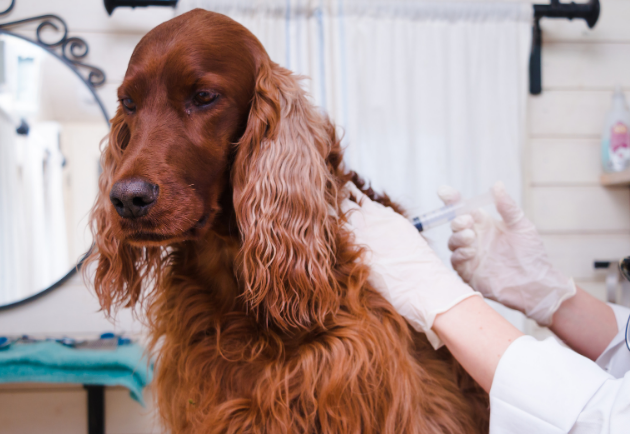
Rabies Vaccine and Your Pet
The rabies virus is carried by wild animals and spread through saliva – most commonly via the bites or scratches of infected animals. Dogs are the most frequent carriers worldwide but in this country, where we routinely vaccinate dogs, the most common carriers are bats. The disease is always fatal once symptoms appear and can only be prevented through vaccination either prior to, or immediately after exposure.
Signs of Rabies
Rabies affects the nervous system and signs include hydrophobia (fear of water), violent behavior, confusion, uncontrollable excitement, paralysis and unconsciousness. If you ever encounter a wild animal or a feral dog or cat you should call animal control. Do not approach them. Animals with rabies may not show a normal fear of humans and may attack unpredictably.
Who should receive a rabies vaccine?
We vaccinate dogs, cats, ferrets and livestock animals because they are more likely to be exposed to wild animals. In addition to pets and other animals, veterinarians and animal control workers who may be exposed to rabies are routinely vaccinated.
How often should a pet be vaccinated against rabies?
The vaccine used at EMRVC is initially effective for one year then boostered every three years. Rabies vaccination is required by law and a valid rabies certificate must be obtained in order to license a dog or cat. While rabies is rare in this country, it is always fatal and if an unvaccinated animal is exposed they may have to be euthanized or quarantined depending on the circumstances.
The risk of rabies may be low but the consequences of contracting it are dire, so all pets should be vaccinated regularly.
– Dr. Shawn Budge
Essex Middle River Veterinary Center provides medical and surgical care for cats and dogs at our animal hospital and veterinary clinic in Essex, Maryland, just outside of Baltimore. Our services include preventive wellness care exams, vaccines, spays/neuters, and a variety of specialized care. Our state-of-the-art veterinary offices are conveniently located near I-695 where we see pets from Towson, Honeygo, White Marsh, and other neighboring Baltimore areas.
